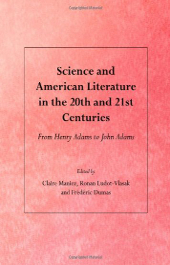- Imprimer
- Partager
- Partager sur Facebook
- Partager sur X
- Partager sur LinkedIn
Ouvrage / Recherche
Since its origin, American literature has always had an uneasy relationship with science: born at a time when science was becoming a profession, it repeatedly referred to it, implicitly or explicitly, in order to assert its difference or, on the contrary, to gain a certain form of legitimacy.
The purpose of this book is to show how scientific discourse informs literary writing, and to consider the relationship the two types of discourse have maintained: mutual metaphorization, questioning or legitimating. Focusing on the literary production of the United States in the 20th and 21st centuries, the book is organized in four parts: the first one, which concerns the works of Henry Adams and Thomas Pynchon, examines the way in which literature writes a history of science; the second deals with the relationship between literature and the developing field of neurosciences, first from a theoretical perspective, then through the study of science-fiction novels; the third one includes essays which, one way or another, raise the issue of the ethics of science and offer a literary answer to the dilemmas raised by scientific progress; the two essays in the last part analyze how digital technology has influenced recent American writing and the consequences of this new mode on reading procedures.
Sous la direction de Claire Maniez, Ronan Ludot-Vlasak, Frederic Dumas.
En savoir plus
Auteur(s) :Claire Maniez, Ronan Ludot-Vlasak, Frederic Dumas
Date de publication :
Relié : 220 pages
Langue : anglais
Dimensions du produit : 21,2 x 15,4 x 2,1 cm

- Imprimer
- Partager
- Partager sur Facebook
- Partager sur X
- Partager sur LinkedIn